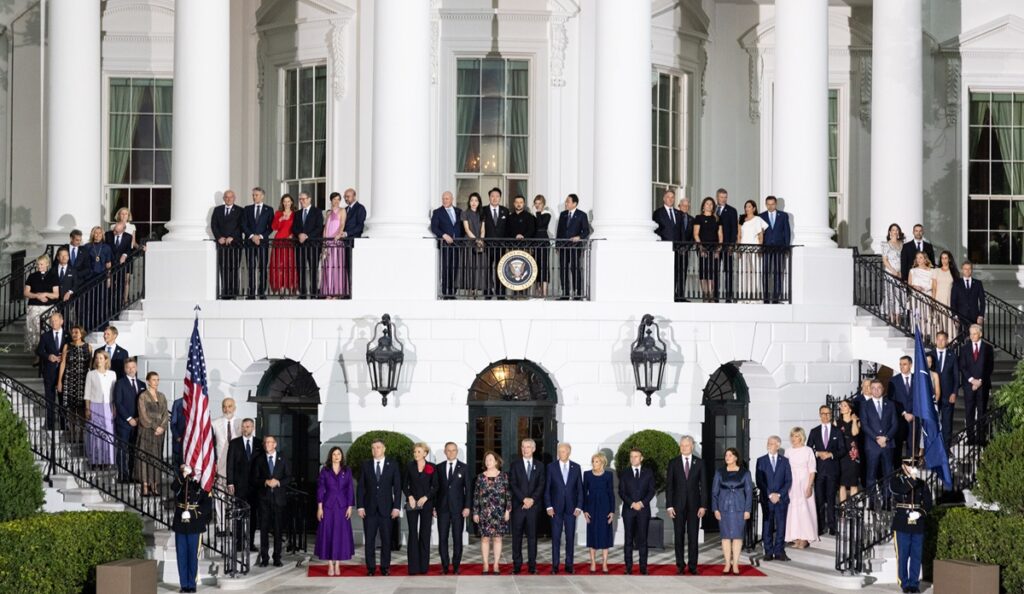NATO leaders, gathered in the Washington to attend the NATO’s 75th anniversary summit from July 9 to 11, emphasized their commitment to Ukraine’s potential membership and adopted a firmer position regarding China’s support for Russia.
Key elements from the declaration of the 32-nation transatlantic military alliance published on July 10 include:
Support for Ukraine
NATO leaders pledged a minimum of €40 billion in military aid to Ukraine for the coming year. However, they stopped short of the multiyear financial commitment that NATO Secretary-General Jens Stoltenberg had advocated.
The declaration emphasized NATO’s continued support for Ukraine’s path towards full Euro-Atlantic integration, including potential NATO membership, contingent on Kyiv’s progress in democratic, economic, and security reforms. The alliance reaffirmed its readiness to invite Ukraine to join once conditions are met and allies agree.
The allies also decided NATO will assume the primary role in coordinating military equipment and training for Ukraine from an ad-hoc U.S.-led coalition.

NATO leaders condemn Russia
NATO leaders also condemned Russia’s “irresponsible nuclear rhetoric and coercive nuclear signaling,” particularly its plan to station nuclear weapons in Belarus, accusing Minsk of enabling Russia’s war in Ukraine.
Despite these tensions, the allies expressed their willingness to keep communication channels with Moscow open to “mitigate risk and prevent escalation,” the declaration read.
China described as a decisive enabler of Russia-Ukraine war
The alliance reiterated its stance on China, calling it a “decisive enabler” of Russia’s war in Ukraine and a systemic challenge to Euro-Atlantic security.
The declaration urged China to stop supporting Russia’s war effort and expressed concern over China’s space capabilities and nuclear arsenal expansion. The statement also accused Iran and North Korea of providing direct military support to Russia.
Indo-Pacific
NATO highlighted the Indo-Pacific region’s importance, stating that developments there directly impact Euro-Atlantic security.
The alliance is enhancing cooperation with Asia-Pacific partners, including supporting Ukraine and cyber defense, according to the declaration.
NATO will meet on July 11 Australia, Japan, New Zealand, South Korea, and the European Union leaders to discuss security challenges and cooperation.

NATO defense and deterrence
Furthermore, the declaration emphasized NATO’s commitment to deter and defend against all air and missile threats by strengthening Integrated Air and Missile Defense. It also reaffirmed NATO’s dedication to ensuring the credibility, effectiveness, safety, and security of its nuclear deterrence mission.
Key Takeaways
Key takeaways from the summit declaration:
- Russia’s invasion of Ukraine has disrupted Euro-Atlantic peace and stability, with Moscow identified as the top security threat.
- Ukraine’s future lies in NATO, and it is on an irreversible path to full Euro-Atlantic integration, including NATO membership.
- China is a decisive enabler of Russia’s war against Ukraine, providing significant support to Russia’s defense industry.
- NATO leaders accuse Iran and North Korea of directly supporting Russia’s war against Ukraine with military aid.
- Over two-thirds of NATO members have met the commitment of allocating at least 2% of their GDP to defense spending.
- The alliance has undertaken the largest reinforcement of collective defense in a generation.

